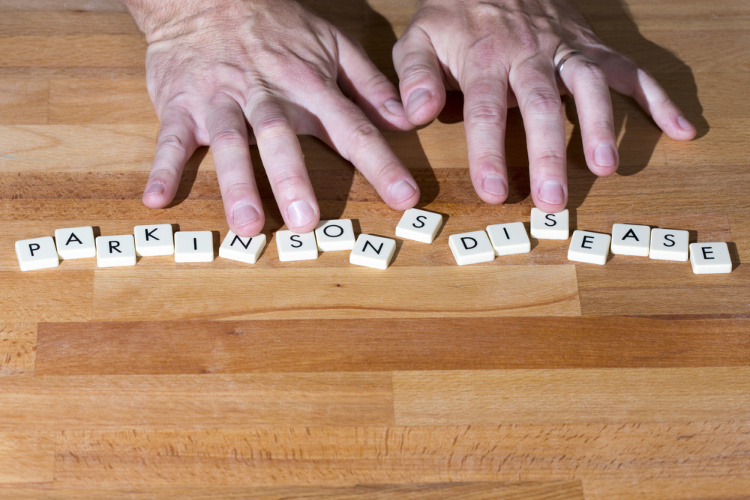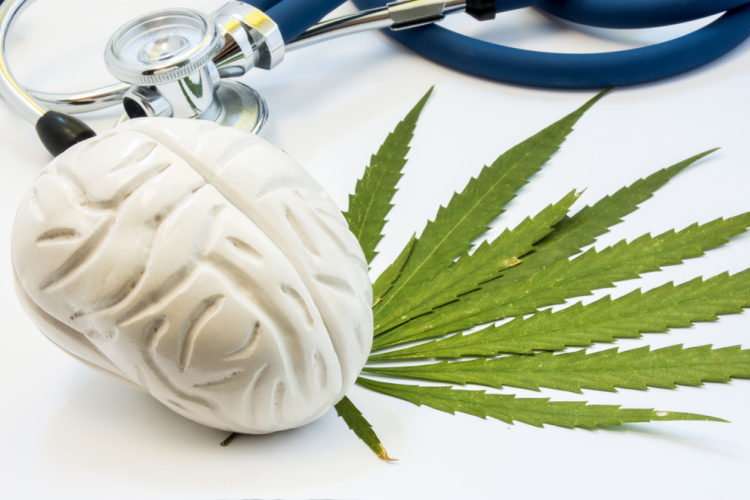While difficult-to-treat diseases like Parkinson’s disease (PD) can seem scary, there has been a recent increase in non-traditional approaches to managing them. Although there is still a lot of research to be done, cannabis is gaining some recognition for its ability to ease the symptoms associated with Parkinson’s. This article outlines what we currently know about how medical cannabis can help.
What is Parkinson’s Disease?
Parkinson’s disease is a degenerative condition known as a motor system disorder. It develops as a result of the loss of dopamine-producing brain cells. Over time, this progressive disease causes severe changes in movement that can impact a person’s ability to perform regular activities. It is most commonly characterized by motor symptoms that include tremors, shaking, the rigidity of muscles, and slowed movement. It also causes non-motor symptoms like depression, anxiety, sleep problems, constipation, fatigue, and more.
As PD symptoms develop, patients can have difficulty talking, walking, and completing simple tasks. While some people end up severely disabled, others only experience minor motor symptoms. The intensity of symptoms varies from person to person, and it isn’t possible to predict which symptoms a patient will develop.

Over 1 million people are living with PD in America alone, with over 10 million people diagnosed worldwide. While PD can happen at any age, most people start to develop symptoms after the age of 50. There is currently no cure for PD, but there are medications that can ease symptoms by helping to replenish dopamine in the brain.
While many patients can benefit from these drugs, not all symptoms respond equally. Some have side effects that cause additional tremor symptoms called dyskinesia, which has many patients and researchers looking to cannabis as an alternative treatment.
Cannabis and Parkinson’s
Science is continually working to develop new ways to treat and manage PD symptoms to improve quality of life, and cannabis has the potential to help.
One of the essential physiologic systems that help maintain our overall health is the endocannabinoid system. It works by promoting homeostasis, and effects everything from appetite, sleep, pain, memory, mood, inflammation, and more. Our endocannabinoid receptors become stimulated by the endocannabinoids we make naturally in our bodies, but they are also stimulated by the cannabinoids found in cannabis.

Parkinson’s disease affects the area in the brain that controls motor function called the basal ganglia, which happens to contain many cannabinoid receptors. Medical cannabis has the potential to help people with PD find relief from symptoms like pain, tremors, sleep and mood disturbances, and problems with movement. It also has anti-inflammatory and antioxidant properties, along with the ability to act as neuroprotector and promote the development of new neurons. Many benefits can even come from the relaxing effects cannabis has on the brain and the body.
Cannabis and Parkinson’s: Movement Control
Symptoms associated with movement are one of the most significant problems for people with PD. The good news is cannabinoid receptors are present in the areas of the brain that are involved in movement control. However, we are still figuring out the exact role that cannabinoids play in the process. While many patients report improvements in their condition from using cannabis, experiments have produced varied results with symptoms like slowness, tremor, and dyskinesia.

One 2014 study found that patients with PD showed improvements in sleep, pain, and tremors after 30 minutes of taking cannabis. While some findings indicate that cannabinoids could help with movement control, others found no effect or that it made it worse. Mixed results like these prove that a lot of research is still needed to learn about the role cannabis plays in helping control movement and how we can use it to improve PD treatments.
Brain Cell Protection
Cannabinoids have a wide variety of actions, which means there is a lot of potential for them to treat Parkinson’s in different ways. Neurodegenerative diseases like PD cause brain cells to struggle with various problems like inflammation, protein misfolding, oxidative stress, and mitochondrial failure.
Many inflammatory changes occur in the brains of people with PD, and the diseases may even be triggered by it. Fortunately, there has been a lot of research that has focused on the CB2 receptors and their ability to regulate inflammation. One study from 2010 found cannabinoids to have significant anti-inflammatory properties, which could potentially help protect brain cells and slow the progression of PD.
Other Symptoms
Although Parkinson’s is known for its physical symptoms, it produces a range of other debilitating issues like anxiety, depression, memory problems, and hallucinations. These are often the most difficult symptoms to treat, but cannabis is showing promise in addressing these. Cannabis has been reported to help reduce pain, improve sleep, and ease some psychological issues associated with battling PD.
As researchers continue to understand how the endocannabinoid system works, advances will likely give us insight into how cannabis can be used for neurological conditions. While there are many ways cannabis can help someone with Parkinson’s, we are continuing to learn the best ways it can be used. Cannabis can have some minor side effects, but many people prefer them to the risks associated with traditional PD medications.
Ultimately, the best way to determine whether cannabis is a suitable option for Parkinson’s is to discuss it with your physician. Maryland is one of only a few states that allows trained physicians to make cannabis recommendation for conditions beyond those listed as qualifying conditions. If you feel that your current treatment plan is not working for you, let your doctor now!
Already have a recommendation or want to learn more about getting one in Maryland? Schedule an appointment today!